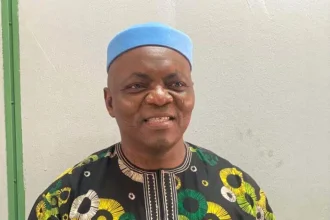The world risks facing a fresh wave of the AIDS pandemic after the United States stopped funding foreign aid, the United Nations has warned.
UNAIDS Executive Director, Winnie Byanyima, said on Monday that millions of lives could be lost if urgent action is not taken.
Byanyima warned that if the funding is not restored, an additional 6.3 million AIDS-related deaths could occur in the next four years.
“You’re talking of losing the gains that we have made over the last 25 years. It is very serious,” she told reporters in Geneva.
The United States has been a major donor in the global fight against AIDS, mainly through its PEPFAR programme, which has saved about 26 million lives over two decades.
However, President Donald Trump, who returned to the White House two months ago, has cut international aid, affecting many African and Asian countries.
“The US cuts mean that today, 27 countries in Africa and Asia are experiencing shortages of staff, disruptions of diagnostics treatment, and surveillance systems are collapsing,” Byanyima added.
Beyond the next four years, the UNAIDS chief warned that without funding, the world could see AIDS resurging globally.
“We’ll see it come back, and we’ll see people die the way we saw them in the ’90s and in the 2000s,” she said.
She praised US efforts in the fight against AIDS, describing it as “one of the greatest acts of humanity in global health”.
Byanyima also pointed to a promising new drug, Lenacapavir, developed by US pharmaceutical company Gilead.
She said trials have shown that the drug is 100 percent effective and could be administered as a single injection per year, making it more affordable for low-income countries.
“That is almost like a flu vaccine,” she explained. “If this could be rolled out ambitiously… we could cut down new infections to close to zero. We could see the end of AIDS.”
Byanyima called on President Trump to reconsider the funding cuts, arguing that restoring PEPFAR would be a win for both the US and the world.
“Lenacapavir can make profits for Gilead, create good jobs for Americans, and save lives,” she said.
She also suggested that if PEPFAR resumes, UNAIDS could work with the US and other donors to help low-income countries become self-sufficient in the fight against HIV/AIDS.
As the crisis unfolds, global health experts are urging world leaders to step in and prevent what could be a major health disaster.











